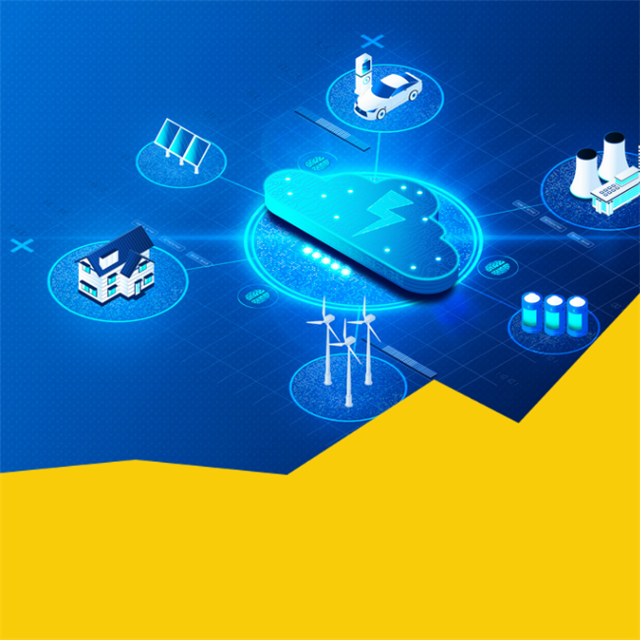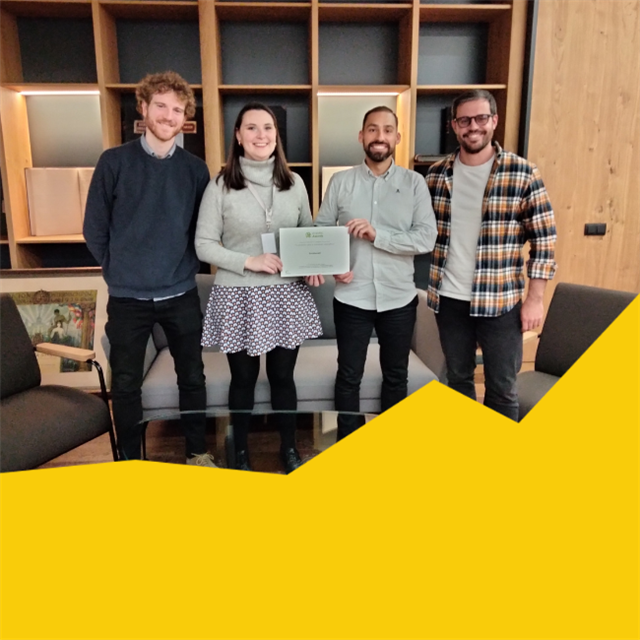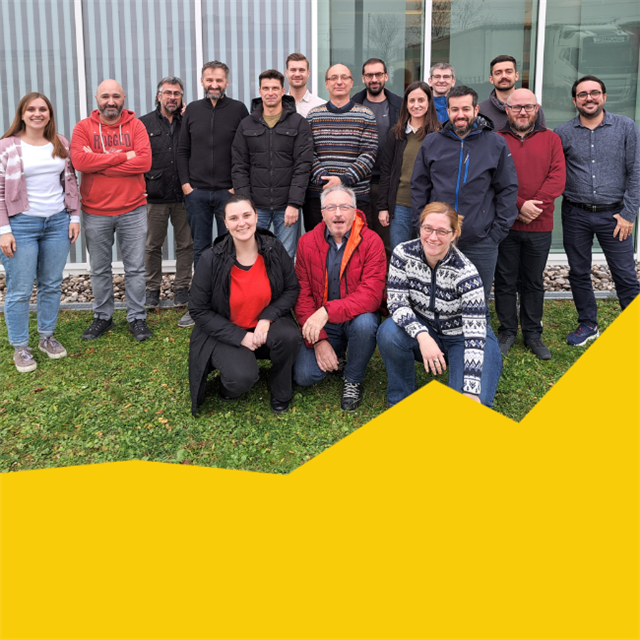28.02.2023 | The FlexCommunity turned 1. On its first anniversary, the members took a look at its achievements and plans for the future.
The FlexCommunity Conference 2023 was packed with many interesting and fruitful discussions looking back at one year of FlexCommunity and discussing plans and strategies for the upcoming year.
The FlexCommunity was founded in 2022 as a platform open for all stakeholders and projects to collaborate on exploiting flexibilities in the energy system. The event addressed, among other things, needs and sources of flexibilities, the technical management of flexibilities and solutions for energy communities. Speakers from different countries and sectors were present and the participants had several opportunities for exchange in interactive workshops.
After a first welcome and introduction by Ludwig Karg from FEVER consortium partner B.A.U.M. Consult, the floor was open to Mark Van Stiphout from DG ENER of the European Commission. He emphasized the importance of the FlexCommunity in his welcome address and let the attendees know of his avid support for the FlexCommunity. Among other reasons, he mentioned Russia's invasion of Ukraine and how it became clear to all of Europe how dangerous dependence on individual players in the energy system is and that we need to do much more to make the energy sector independent. A transformation in society on how we deal with energy, digitalisation and the use of local resources is a part of it. The leading questions for Mark van Stiphout are at this point: How can we make sure we have enough flexibility in the energy system? And how can we make sure local generation comes as benefit for customers? This is where the FlexCommunity comes in. The community gathers evidence, shows what is possible and shows what we have achieved so far while involving regulatory parties, systems operators, utilities and many more. In his view, this potential, and the close cooperation between the BRIDGE initiative and the FlexCommunity, can have a great impact. Or, as he said: "I only see complementarity. Let´s talk how to cooperate and how to drive that forward.”
The keynote from Michele de Nigris, RSE/NSCG, was dedicated to the needs and sources of flexibility. He drew a picture about the development of the energy transformation from a few years ago up to today, with a discussion of its current challenges and potential solutions. In a few words, he said that we traditionally had a few big power plants that provided energy to the electrical load and made the production fully controllable. But, today there are many RESs replacing the traditional power plants, making the production less controllable. So how do we achieve a stable supply of energy despite these changed conditions? Flexibility is the key!
An interesting and fruitful panel discussion on the topic of harvesting flexibilities followed. It was led by our moderator Ludwig Karg and attended by the panellists Ercole De Luca, Lola Alacreu García, Prof. Dr. Antonello Monti and Dr. Sonja Klingert. Various aspects were addressed in the discussion. Above all, Prof. Antonello Monti and Lola Alacreu García made clear that we should not look for a silver bullet as conditions change according to regions, infrastructure, renewable availability, behaviour, society and many other aspects. Ercole de Luca pointed out that incentives, including financial ones, must be created to bring about a change in thinking. Dr. Sonja Klingert on the other hand thinks that financial incentives are not decisive in making people change their minds. What everyone agreed on, however, was that people will be the cornerstone of the future energy system. Therefore, it is important to guide people towards taking responsibility again and to use digitalisation as the key in hiding the complexity of the energy system to make it more usable for the people themselves. This interesting panel discussion opened the floor for three interactive parallel workshops to describe flexibility needs, types of provision and citizen groups.
The FlexCommunity was founded in 2022 as a platform open for all stakeholders and projects to collaborate on exploiting flexibilities in the energy system. The event addressed, among other things, needs and sources of flexibilities, the technical management of flexibilities and solutions for energy communities. Speakers from different countries and sectors were present and the participants had several opportunities for exchange in interactive workshops.
After a first welcome and introduction by Ludwig Karg from FEVER consortium partner B.A.U.M. Consult, the floor was open to Mark Van Stiphout from DG ENER of the European Commission. He emphasized the importance of the FlexCommunity in his welcome address and let the attendees know of his avid support for the FlexCommunity. Among other reasons, he mentioned Russia's invasion of Ukraine and how it became clear to all of Europe how dangerous dependence on individual players in the energy system is and that we need to do much more to make the energy sector independent. A transformation in society on how we deal with energy, digitalisation and the use of local resources is a part of it. The leading questions for Mark van Stiphout are at this point: How can we make sure we have enough flexibility in the energy system? And how can we make sure local generation comes as benefit for customers? This is where the FlexCommunity comes in. The community gathers evidence, shows what is possible and shows what we have achieved so far while involving regulatory parties, systems operators, utilities and many more. In his view, this potential, and the close cooperation between the BRIDGE initiative and the FlexCommunity, can have a great impact. Or, as he said: "I only see complementarity. Let´s talk how to cooperate and how to drive that forward.”
The keynote from Michele de Nigris, RSE/NSCG, was dedicated to the needs and sources of flexibility. He drew a picture about the development of the energy transformation from a few years ago up to today, with a discussion of its current challenges and potential solutions. In a few words, he said that we traditionally had a few big power plants that provided energy to the electrical load and made the production fully controllable. But, today there are many RESs replacing the traditional power plants, making the production less controllable. So how do we achieve a stable supply of energy despite these changed conditions? Flexibility is the key!
An interesting and fruitful panel discussion on the topic of harvesting flexibilities followed. It was led by our moderator Ludwig Karg and attended by the panellists Ercole De Luca, Lola Alacreu García, Prof. Dr. Antonello Monti and Dr. Sonja Klingert. Various aspects were addressed in the discussion. Above all, Prof. Antonello Monti and Lola Alacreu García made clear that we should not look for a silver bullet as conditions change according to regions, infrastructure, renewable availability, behaviour, society and many other aspects. Ercole de Luca pointed out that incentives, including financial ones, must be created to bring about a change in thinking. Dr. Sonja Klingert on the other hand thinks that financial incentives are not decisive in making people change their minds. What everyone agreed on, however, was that people will be the cornerstone of the future energy system. Therefore, it is important to guide people towards taking responsibility again and to use digitalisation as the key in hiding the complexity of the energy system to make it more usable for the people themselves. This interesting panel discussion opened the floor for three interactive parallel workshops to describe flexibility needs, types of provision and citizen groups.


